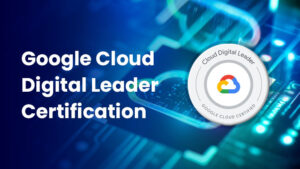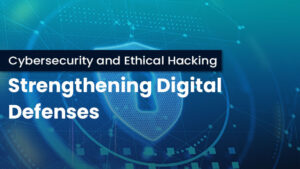Introduction
Blockchain is a vital component of this developing technology. With the help of blockchain technology, organizations can communicate data quickly and securely without sacrificing security. The transaction is not subject to the control of any one party. This article covers detailed information on Blockchain as a Service.
Creating, maintaining, and monitoring a blockchain system for a particular application takes much time because blockchain technology is typically quite sophisticated. Distributed ledgers are now a more widely used alternative to Blockchain as a Service (BaaS), especially for organizations looking to reduce costs and overhead. Although blockchain technology has many practical uses, some sectors still have trouble realizing its full potential. Blockchain can also be made available as a cloud service.
For further details, please visit the IPSpecialist website. IPSpecialist is the ideal place to begin your career if you are interested in Cloud Computing or related fields. We offer online courses, study guides, e-books, practice questions, exam-cram notes, and career guidance. Check out our Courses now!
What Is a Blockchain
Blockchains are distributed databases or ledgers that are shared among computer network nodes. A blockchain works as a digital database to store data. Establishing a safe and decentralized transaction history in cryptocurrency systems is the most well-known use of blockchain technology. Blockchain technology fosters confidence by ensuring the security and correctness of a data record without the need for a reliable third party.
What Application Utilizes Blockchain
Blockchain technology is now employed for various purposes, including supply chain traceability, real estate transactions, retail loyalty incentive schemes, and electronic voting.

What is Blockchain as a Service
Blockchain-as-a-Service (BaaS) is a third-party service that allows companies to create and manage blockchain-based networks utilizing cloud technology. A relatively new advancement in blockchain technology is the ability to provide third-party services. Beyond its most well-known use in bitcoin transactions, blockchain applications have grown to cover secure transactions of all kinds. As a result, hosting services are in great demand.
Blockchain technology is now being used to provide services to a larger audience through the cloud-as-a-service concept. Similar to SaaS, PaaS, and IaaS models, which enable the usage of cloud-based apps and storage, this architecture operates similarly.
Businesses of all sizes can use BaaS as a low-cost way to implement blockchain technology. BaaS makes it possible for businesses to create blockchain apps at a low cost by using the services of blockchain providers. The Fortune Business Insights report projects that by 2027, the global BaaS market would be worth USD 24.94 billion.
Importance of Blockchain as a Service
Information is the engine that moves a company forward. It is preferable to get it delivered as promptly and accurately as feasible. Blockchain offers real-time, shareable, and transparent data that is recorded on an immutable ledger and is only accessible to persons who have permission to view it, making it the best method for delivering such information. Blockchain networks track orders, payments, accounts, production, and several other things. Members can see all the information about a transaction in one spot, increasing their trust and creating more opportunities and efficiency.
IT companies in a variety of industries are actively investigating the deployment of blockchain technology. Despite this, plans for adoption are frequently slowed down by the inherent technical complexity, a lack of subject expertise, and the operational overhead expenses of constructing, managing, and maintaining the Blockchain. However, BaaS is currently considered a potential remedy for this issue.
A reliable BaaS supplier will also provide access to a wealth of knowledge and experience that can be used to improve system security. As a result, it drastically lowers the number of risks that would need to be managed if it had been created internally.
How Blockchain-as-a-Service Work
The BaaS operator ensures that crucial blockchain-related assets and services are preserved and managed. It can also control bandwidth, distribute resources, determine storage requirements, and pinpoint security threats. BaaS relieves users of the burden of worrying about infrastructure and performance issues, focusing on their primary activity, blockchain technology.
Take BaaS as an illustration of a hosting company. Users may create a web page that millions of people see every day in only a few minutes.
AWS Blockchain Services
- Amazon Web Services is the best option for anyone looking to get on the blockchain.
- Users can quickly construct or join private Hyperledger Fabric networks with just a few clicks.
- Amazon Quantum Ledger Database is also available through AWS. This database is designed for programmers that need to guarantee completely immutable data change tracking. The short name for this database is QLDB, and it has two components: a section that keeps the current state data and an append-only journal that records every modification made to that current state database.
One of the earliest well-known cloud service providers to enter the hosted blockchain market and with the most advanced solutions is IBM Cloud. IBM hosts blockchains for several major firms. Additionally, IBM has contributed significantly to Hyperledger Fabric, a well-known open-source blockchain technology, and the software that powers their branded blockchain products, and it continues to do so.
The Oracle Blockchain Platform is a Hyperledger Fabric implementation with some additional capabilities to improve compatibility with the Oracle Cloud. They host blockchains for the financial services, healthcare, fashion, and transportation sectors.
Blockchain-as-a-Service Companies
The firms that provide blockchain as a service will be discussed in the section below:
To provide greater performance, uptime, and scalability, Nodesmith offers upgraded blockchain nodes. The efficient caching layer ensures quick data rendering.
There are presently three data centers worldwide where Nodesmith is fully operational. It also ensures that all API calls are routed to the closest data center using its latency-based routing.
Dragonchain guarantees a simple transition to the blockchain. It contains a lot of business-ready applications tailored to the requirements.
It provides a sample portfolio to assist developers in establishing their blockchain projects. These examples demonstrate use cases for the Corda platform and can hasten the development of applications.
Users may readily access information specific to the sector on its website. It is easier to find the precise use case for the business type and how Skuchain can assist users with their blockchain expertise.
Within the realm of blockchain-as-a-service, it offers Enterprise Blockchain. This extends the advantages of blockchain’s anti-tampering capabilities to the company’s payment system.
PayStand employs a hybrid blockchain to maintain both parties’ privacy and make the records easily verifiable.
Conclusion
Firms are already providing Blockchain as a service to help customers adopt this revolutionary technology and maintain their competitiveness. Large companies like Microsoft and IBM deliver Blockchain as a service. Instead of creating these platforms themselves, CEOs can source blockchain functionality due to their services. A blockchain-based service might be a game-changing breakthrough in any business.
If one desires to advance their business, BaaS is the technology they need. Blockchain as a Service expands the business’s potential by making blockchain technology available to a larger audience and supporting all the quickly developing use cases of the technology.








